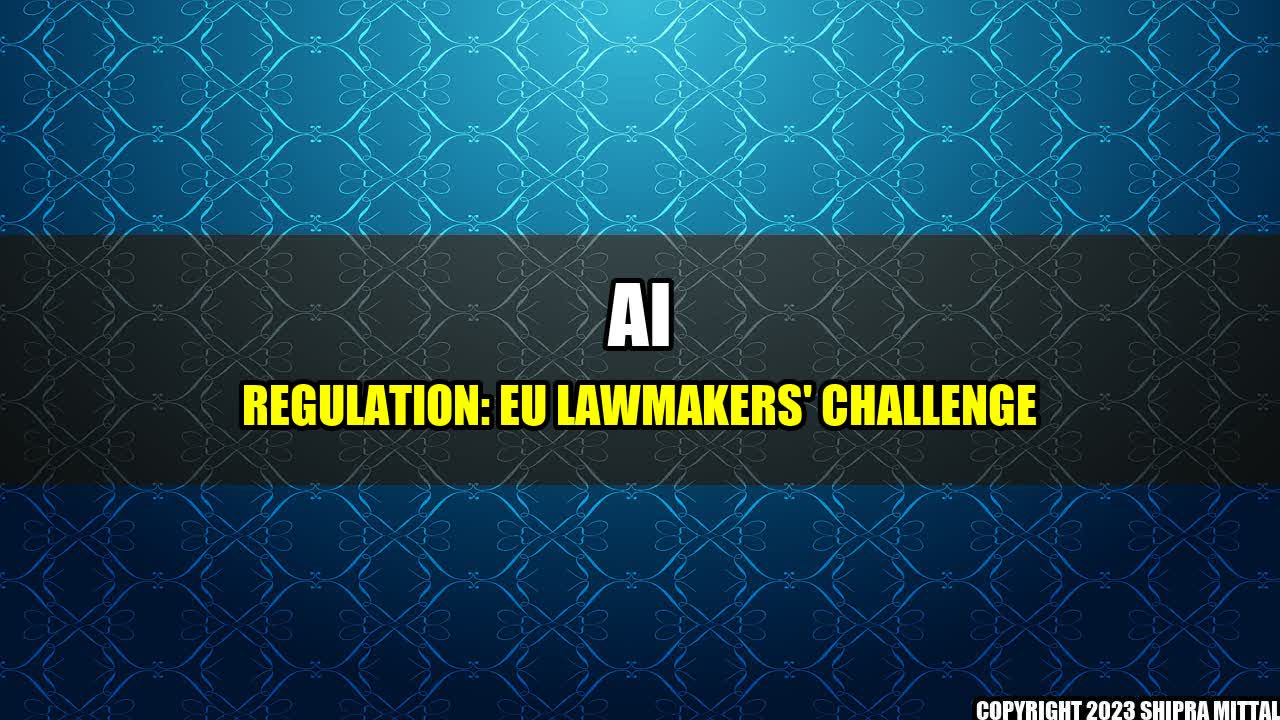Imagine a world where a computer program is able to write news articles, essays, and even poetry - all on its own. This sounds like science fiction, but it's already here. Generative AI, powered by machine learning algorithms, is capable of producing original texts that are virtually indistinguishable from those written by humans. While this technology has sparked excitement in tech circles, it has also raised concerns about its potential misuse and unintended consequences.
Recently, lawmakers in the European Union (EU) have taken center stage in this debate. They are calling for greater regulation of generative AI, which they say poses a significant threat to privacy, security, and even democracy. One of the companies at the forefront of this issue is ChatGPT, a conversational AI system developed by OpenAI.
ChatGPT uses natural language processing (NLP) and machine learning algorithms to generate realistic, human-like responses to text-based inputs. While this system has proven useful in various applications, including chatbots and customer service, it has also been used for less benign purposes. For example, it can be used to create fake news articles, spread propaganda, and even impersonate individuals online.
As a result, EU lawmakers are concerned about the potential risks of such technology and have taken steps to address them. In April 2021, they proposed a new set of regulations that would ban certain uses of generative AI, such as the creation of deepfakes or the manipulation of social media conversations. The proposal also requires companies like OpenAI to disclose any major updates to their AI systems and to ensure transparency in the data used to train them.
Other companies in this space are also feeling the pressure. Facebook, for example, is facing criticism for its use of AI to curate its newsfeed, which some say promotes divisive content and perpetuates the spread of misinformation. Meanwhile, Google has been accused of using AI to unfairly prioritize its own products and services in search results.
While the debate over AI regulation is far from settled, it is clear that something must be done to address the ethical and societal implications of these powerful tools. As OpenAI co-founder Greg Brockman puts it, "AI is a powerful technology that can be used for good or ill, and it's important that we as a society decide how to put it to work."

Akash Mittal Tech Article
Share on Twitter Share on LinkedIn